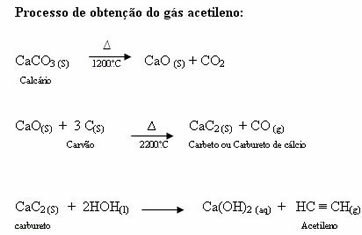Many people who have a busy and busy life tend to eat instant noodles, the well-known “noodles”, as it is easy and quick to prepare. It is true that this is not an ideal food for health, especially if it is in excess, a fact that we will explain later in this text. However, a few years ago, news emerged that occasionally returns to circulate mainly on social networks on the internet, leaving many consumers of this product very afraid.
This alert states that instant noodles contain a kind of wax that causes cancer. He also says that this is a wax that is also used in Styrofoam boxes, which takes two days to be eliminated from our organism and that it is responsible for the pasta not sticking together at the time of its preparation.
But is this really true?
Well, looking at the evidence, we start with the fact that this 'alert' do not cite any reference, source or research that proves what is said. This already makes us doubt the veracity of the information. And there really isn't any scientific research to confirm this.
Another point is to understand what makes this type of pasta not stick. Second companies producers of this product, the The process used to make instant noodles is drying in boiling oil. Therefore, there is no use of any wax in the production of this industrial food.
In addition, as explained in the text "Chemical composition of waxes”, the waxes, or ceridia, are constituted mainly by esters formed from a superior fatty acid and a superior fatty alcohol, which can be of vegetable or animal origin. They are used in the manufacture of cosmetics, candles, soaps, shoe polishes, floor waxes, ointments, creams, among other products.
If a person ingests a small amount, for example a candle or crayon, it will not be toxic, but if it is in large amounts, it can cause intestinal obstruction. The other products mentioned, such as floor waxes, are more dangerous, but this is because they also have other more toxic constituents.
Beeswax obtained from honeycombs contains 72% esters, 13.5% free acids and 12.5% hydrocarbons. It is used as a thin coating to make many foods more durable. But beeswax does no harm to the body. Other biopolymers that are also used for this purpose are not absorbed by the body.
Do not stop now... There's more after the advertising ;)
Thus, even if there was some wax in the instant noodles, maximum what would cause would be intestinal obstruction, which would lead the person to vomit, have abdominal pain and nausea. But to say that it causes cancer is already an unproven exaggeration..
So this warning is simply a myth invented by someone. However, after reading this article, don't think then that the constant consumption of instant noodles won't do you any harm. As stated at the beginning, although its consumption does not cause any harm if not in excess, we need more nutrients than this type of food can provide us.
Another alarming factor is that ANVISA (National Health Surveillance Agency) provided the technical report No. 54/2013 to inform about analyzes made in several products in the year of 2012 in order to verify the sodium concentration (sodium ion). The results showed that instant noodles are among those with the highest levels of sodium in relation to absolute content. The average sodium content found among the instant noodles was 1,881 mg/100 g, representing the second highest absolute value of sodium among the analyzed products. Among the types of instant noodles analyzed, there was one that reached the value of 2,385 mg/100g. Soups were the only product that presented higher absolute values of sodium, with an average of 3,861 mg/100g and a maximum value of 4,240 mg/100g
Excess sodium ions in the body can cause heart problems such as high blood pressure. Therefore, great care must be taken with the regular consumption of these products.
An 80 g serving of instant noodles has an average of 1505 mg of sodium, which already represents an average of 63% of the daily nutrient values established by Resolution RDC n. 360, 2003, in Appendix A, which recommends the consumption of 2,400 mg for the whole day. The WHO (World Health Organization) recommends that the average of sodium cations that should be ingested per day is only 5 g.
By Jennifer Fogaça
Graduated in Chemistry



